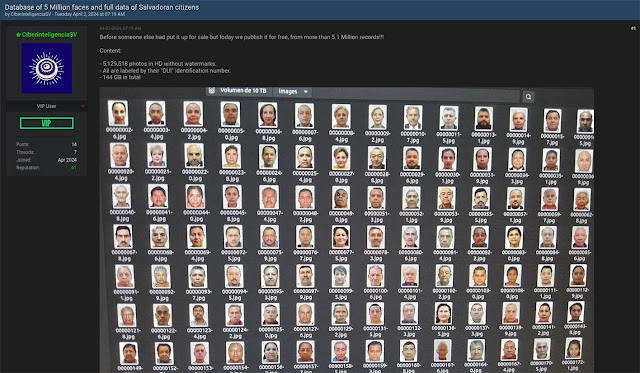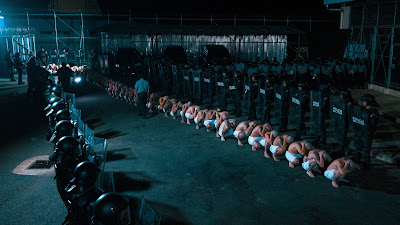The leaked personal information and photos of almost every Salvadoran

Screenshot of leaked data Cyber-security experts have been evaluating the distribution on the dark web of the personal information of more than five million Salvadorans, including high resolution ID photos, names, addresses, and national identity (DUI) numbers. The cybersecurity company Resecurity wrote : [T]his data leak is significant because it marks one of the first instances in cybercrime history where virtually the entire population of a country has been affected by a compromise of biometric data....Beyond the massive scale of Salvadorian PII records, threat actors also obtained a headshot of each victim, which represents a crucial biometric data marker – particularly in the golden age of generative AI. Notably, the vast scale of this biometric and PII data breach places most of El Salvador’s population at significant risk for identity theft and fraud. Armed with modern deep fake technology, threat actors can leverage victim headshots and related PII to stage more convincing fr





